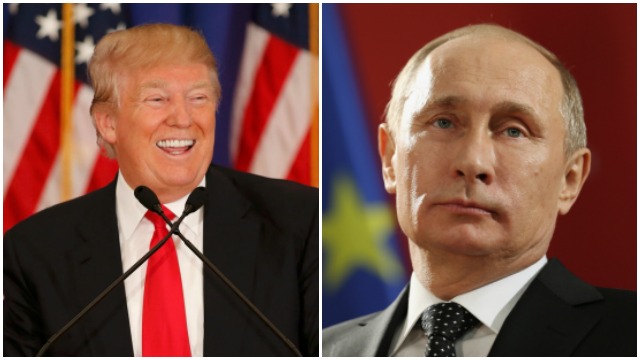
On late Friday night, the Washington Post published an explosive story that claimed "the CIA has concluded in a secret assessment that Russia intervened in the 2016 election to help Donald Trump win the presidency, rather than just to undermine confidence in the U.S. electoral system."
While Democrats, who are still eager to make sense of the loss of the 2016 election, jumped on this news, Trump was quick to dismiss the suggestion that his campaign was helped by the Russian side. While at this point the story may or may not be true, Glenn Greenwald, the journalist perhaps best known for bringing out the Snowden and NSA stories, suggests five reasons why we should be sceptical about this report.
(1) Not enough evidence
The crux of the article is peddling assertions by anonymous individuals, unaccompanied by any sort of evidence.
(2) CIA stories in the past have similarly let us down
The CIA has been caught with its flipper open on various occasions. From getting caught lying by senate oversight committees when questioned about their torture program to lying about the number of civilian deaths caused due to the drone program, the CIA has had a dubious past to say the least.
(3) Inter-agency rivalry dominates the plot
Remember FBI Director James Comey's letter in the final days of the race that many believed helped sway Clinton's momentum? The same FBI had also given a clean chit to Trump when they were investigating said malpractice between his campaign and the alleged intervention from Russia.
The CIA, on the other hand, had backed Hillary and a former CIA director – Michael Morell – also claimed that "Mr. Putin had recruited Mr. Trump as an unwitting agent of the Russian Federation."
Another CIA director – Gen Michael Hayden – also said Trump is "the useful fool, some naif, manipulated by Moscow, secretly held in contempt, but whose blind support is happily accepted and exploited."
But neither agency provided any hard facts to support their conclusions.
(4) Points of contradiction and inconsistencies
Glenn Greenwald writes: More important is what the Post buries in its story: namely, what are the so-called "minor disagreements among intelligence officials about the agency's assessment"? How "minor" are they? And what do these conclusions really mean if, as the Post's sources admit, the CIA is not even able to link the hack to the actual Russian government, but only to people outside the government (from the Post: "Those actors, according to the official, were 'one step' removed from the Russian government, rather than government employees")?
(5) Even Democrats used Mccarthyist tactics to vilify their opponents
Democrats had accused Jill Stien of being a Putin stooge in August and Greenwald defended her by arguing, "So that's the Democratic Party's approach to the 2016 election. Those who question, criticise or are perceived to impede Hillary Clinton's smooth, entitled path to the White House are vilified as stooges, sympathisers and/or agents of Russia: Trump, WikiLeaks, Sanders, The Intercept, Jill Stein. Other than loyal Clinton supporters, is there anyone left who is not covertly controlled by or in service to The Ruskies?"
Check out this interview below this week after the WP story broke where Adam Schiff is unable to back up his assertions :














